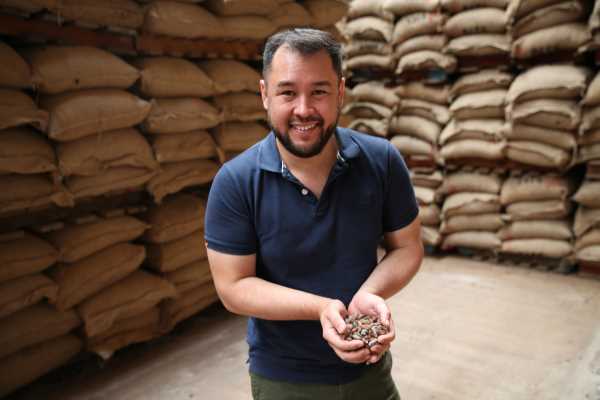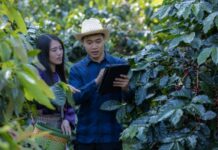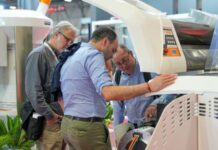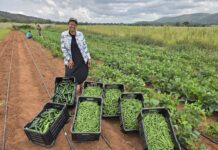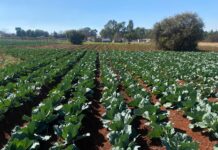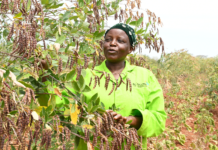In the wake of the latest landmark UN report on climate change dubbed “code red for humanity”, which warns of increasingly extreme and devastating weather fronts caused by human activity, world leaders are preparing for discussions on how to tackle climate change at COP26 in November.
As the world lays witness to the wrath of climate change, many people are looking for ways in which they can contribute towards the deep cut in emissions of greenhouse gases, which could stabilise rising temperatures. With the existential threat climate change poses to food production, BBC World News and BBC.com will feature two special editions of the popular, multiplatform series, Follow the Food, sponsored by Corteva Agriscience™.
Presented by renowned Botanist James Wong, the two specials will examine the challenges of food security, and the complicated relationship between food and carbon.
In the first special, ‘The Fight For Food Security’, James Wong examines how, for millions of people around the world, food security is far from guaranteed, and even some of the planet’s richest countries are having to face up to potential vulnerabilities in their food supplies. He speaks to Pratima Singh, Senior Consultant in Public Policy at the Economist Intelligence Unit, whose research has found that global food security has deteriorated for the second year in a row in 2020.
In Singapore, James visits Eco-Ark, one of the first floating closed-containment fish farms in the world, producing 166 tonnes of fish a year, approximately 20 times more than the minimum level set for coastal fish farms in Singapore. He also visits Germany, where the recent floods – one of largest natural disasters in over fifty years – wiped out thousands of acres of crops overnight, and how this change in weather impacts local farmers.
In the second special, ‘The Carbon Challenge’, Follow the Food explores how agriculture can significantly reduce its own greenhouse gas emissions and has the capacity to turn more land in to carbon sinks. In the USA, James visits international research group, RIPE, to find out how they’re using scientific engineering to boost photosynthesis by 40% on staple crops such soybeans, potatoes, rice and black-eyed peas. He also heads to SoyFACE (Soybean Free Air Concentration Enrichment), an innovative facility in Illinois which is designed to discover the effects of atmospheric change on food production by growing crops in an atmosphere that has higher levels of carbon dioxide, a higher temperature and altered soil water availability.
James also speaks to William Hohenstein, Director of USDA’s Office of Energy and Environmental Policy to find out more about their climate change program, and how the USA is addressing energy development and environmental policy.
James Wong, ethnobotanist and presenter of Follow the Food, said: “The UN report on climate change is a stark reminder that our food system is incredibly vulnerable. These two special episodes of Follow the Food will take audiences on a journey from farm to fork, looking at how both the industry and consumers can make choices to significantly reduce the food system’s impact and ensure it has the ability to function well into the future.”
The multi-platform specials include two half-hour programmes on BBC World News and two in-depth articles on BBC Future. Each story brings audiences insights into what we’re eating, where it came from and how it was produced, visiting experts across the world.
The first Follow the Food special, ‘The Fight For Food Security’, will air at 0230 GMT on Saturday 11th September and 0930, 1530 and 2130 GMT on Sunday 12th September on BBC World News. ‘The Carbon Challenge’ will air on the 30th and 31st October. Audiences can also visit www.bbc.com/followthefood to watch the episodes in full and access additional special features.


